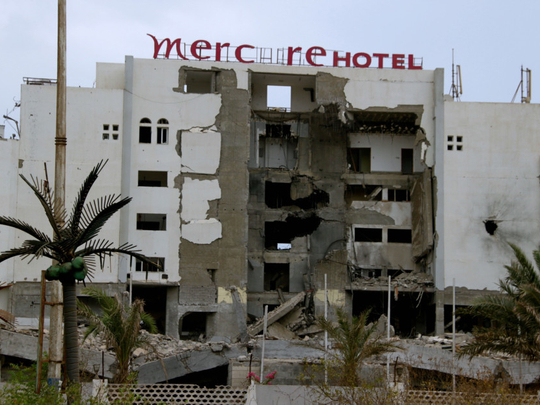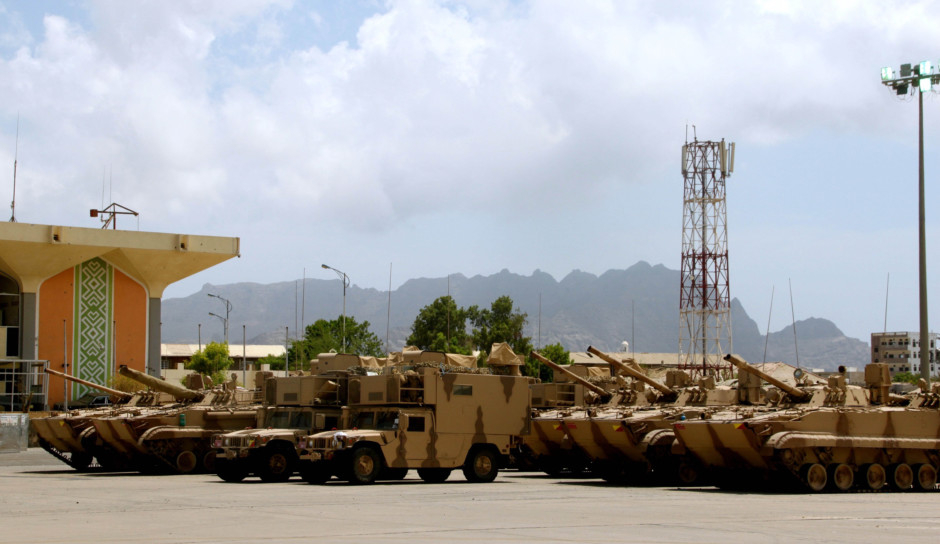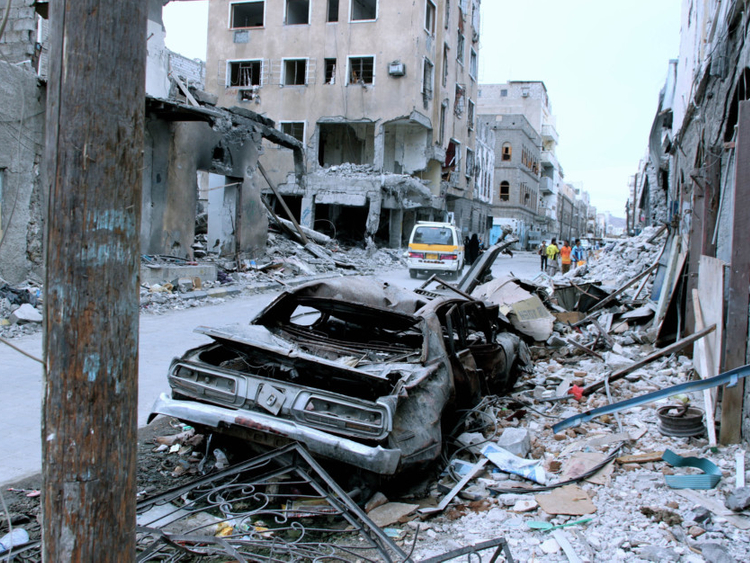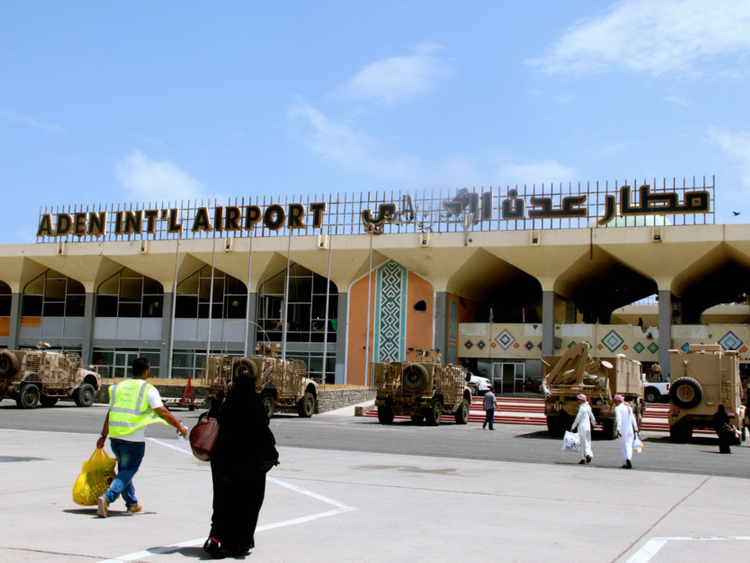
Aden: As you enter the embattled southern port city of Aden, Emirati soldiers donned in military uniforms and high cream boots surround the battered international airport, where UAE armed vehicles are neatly aligned along the tarmac.
The wires hang loosely from the roof, and shattered glass is strewn around as immigration officials welcome Yemen’s refugees and foreign nationals in the 40 degrees sweltering heat.
Driving past the airport, it is clear Aden is still reeling from the consequences of 120 days of war as once tall sea-facing international hotel chains are replaced by singed buildings needing much refurbishment works.
Posters of Naif Al Bakri, the former Governor of Aden, are plastered on vehicles and traffic points, but there is a dearth of a single security force. Despite the flags of the People’s Democratic Republic of Yemen, the former southern state that separatists demand to reinstate, alongside the UAE and Saudi flags, it’s unclear who is in charge.
As a result of the power vacuum, security is a concern, even two months after UAE forces took over from the Al Houthi militia in mid-July. Masked assailants set a catholic church ablaze on Wednesday in Crater city, and in August, a bomb exploded at the governor’s temporary headquarters in Aden. The governor was unharmed.
Even before the war in April, Aden’s economic health was in decline after years of economic and political disenfranchisement since the country’s reunification in 1994.
Despite the ongoing instability and economic woes, Aden’s residents are hopeful about their future.
“The UAE has now taken over the security files and is looking into the redevelopment of Aden, so Inshallah, we will see progress,” said Adel, a journalist with Aden Al Ghad.
On Sunday, Dr Mohammad Atiq Al Falahi, secretary general of the Emirates Red Crescent (ERC), assured Aden’s students they would be able to return to school after Eid Al Adha, as the UAE rebuilt more than 150 schools that were ravaged during the war.
Yemen’s government, which was in exile in Riyadh since March, returned to Aden on Wednesday.
“The government has only arrived ... [recently], so now they are making decisions on who will be appointed, but there is a lot of work to be done,” he added.
Many victims are already starting to see the positive outcome of the UAE’s efforts as basic electricity and health care infrastructure are installed in homes and hospitals in severely battered areas, including Al Tawahi, Crater and Khormaksar.
“It was unbelievably hot in July, and it was the most difficult time of the year in Aden. None of my family were injured, but many of my friends died in front of me,” said Mohammad Shehab Anwar, who lives in Crater.
In terms of security, Anwar recalls a time when people couldn’t step out of their front doors. He points to a mountain overlooking the mosque where children would collect water for the family. “Al Houthi snipers struck children as young as seven from the top of the mountain for entertainment,” he said, adding, “Of course, the UAE is trying its best to improve the security situation now, but it will take time”.
Dr Falahi, together with the Yemen’s prime minister Khalid Bahah, spoke about the ERC’s role in rebuilding, and said there are bigger and long term plans for reconstruction not only in Aden but also other provinces, too.
With basic needs like water and electricity, many are starting to feel hopeful about the future.
“Now we have generators and electricity for most of the day. We are grateful for their rebuilding efforts,” Anwar continued, optimistic about returning to finish his engineering degree in October.
In Shaikh Othman, Al Sadaaka Hospital’s constant scramble for medicines and facilities has come to an end. “Most of the time there was no power, patients were suffering from severe injuries, and even the atmosphere was not conducive for their recovery,” said Dr Ghassan Ali, a surgeon who treating those injured during the war. Due to the acute shortage of basic medicines and anaesthesia, Dr Ali said it was challenging to conduct complex procedures. “With the UAE and the Qatar Red Crescent stepping in, there has been significant improvement,” Dr Ali said.
Mohammad Ahmad sits at his studio in Aden Television in Al Tawahi with a renewed hope the TV channel will resume work in a few weeks. The channel’s interiors were impacted because of its proximity to the central security forces’ camp.
“For the channel, the UAE will support us with new machines and equipment as plenty of machines and the interiors were destroyed by the bombs, missiles and air raids,” he said.
Meanwhile, the UAE continues to support the city’s government-run association for the disabled, the war-wounded, and helps in the rebuilding works at several maternity health centres, physiotherapy centres and institutes for the blind in the city’s worst hit areas.















